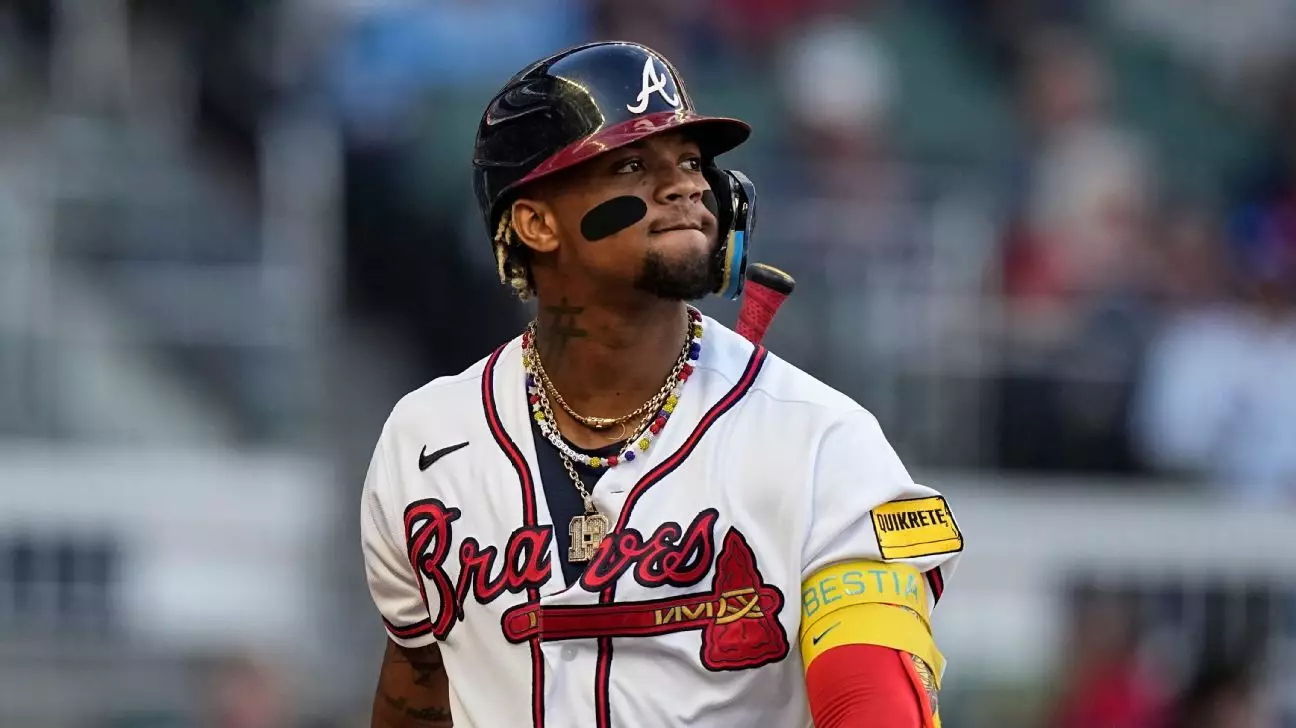The journey of an athlete is often paved with both glorious triumphs and daunting challenges, and for Ronald Acuña Jr., that path has been littered with the obstacles of injury. After an alarming ACL tear last May, the 27-year-old outfielder found himself sidelined, leading to uncertainty not just about his career but also regarding the Atlanta Braves’ future this season. As teams grapple with the loss of key players, Acuña’s absence has been palpable. The Braves struggled significantly in the early stages of the season, facing a disheartening loss record that is hard to ignore.
Acuña is not just any player; he embodies the spirit of competitive baseball. His remarkable performance in the previous season culminated in a National League MVP award, where he dazzled fans with 41 home runs and an astounding .337 batting average. The ACL surgery on June 6 might have halted his momentum, but it also highlights the resilience required to reclaim his spot among baseball’s elite. As he prepares to undergo a critical evaluation next week in Los Angeles, Acuña’s situation remains a captivating narrative in the world of sports science and athlete recovery.
The Significance of Patience in Recovery
Patience is a virtue often preached yet rarely practiced. In Acuña’s case, it becomes quintessential. Braves manager Brian Snitker emphasized that there is no rush; this recovery is measured and meticulously planned. The need for thorough evaluations before intense physical activity such as running or cutting is evident. While Acuña has made strides in training with live batting practice, he has yet to make an actual sprint out of the batter’s box—revealing the level of caution that characterizes modern sports medicine.
Acuña’s disciplined approach underscores the meticulous nature of recovery in professional athletics. It serves as a reminder that rushing back can lead to long-term setbacks. Snitker’s insights into Acuña’s emotional and physical readiness shed light on a larger conversation about athlete mental health during recovery phases. The physical strength can be rebuilt, but the psychological hurdles are equally critical. For athletes, returning to form often requires not just physical rehabilitation but also mental fortitude in confronting fears of re-injury.
Impact on the Team and Future Expectations
The impact of Acuña’s absence on the Braves is reflective of the adage “a chain is only as strong as its weakest link.” Atlanta’s early season woes, including a troubling scoring record, can be attributed largely to the gaps left in their line-up. Fans and analysts alike are keenly aware that while Acuña recovers, the team’s success largely hinges on the performance of those filling his role.
The collaborative nature of a baseball team requires that each player adapt, grow, and often, overachieve in the face of adversity. Nevertheless, Acuña’s return is not just a wish for fans; it represents a possibility—one steeped in hope and expectation for a team that needs its star to soar once again. The anticipation surrounding his eventual return is matched only by the excitement for what could follow: a second chance to re-ignite a career that holds tremendous promise and could redefine the Braves’ season trajectory.
As Acuña embarks on this precarious yet hopeful journey, he reminds us all about the fragility of athleticism, the importance of strategic recovery, and the unwavering hope that transcends the uncertainties of any setback.

